Bright Lights

Brief Synopsis
Cast & Crew
Busby Berkeley
Joe E. Brown
Ann Dvorak
Patricia Ellis
William Gargan
Joseph Cawthorne
Film Details
Technical Specs

Synopsis
Joe and Fay Wilson, a husband and wife burlesque team, are the stars of Oscar Schlemmer's revue as it tours the provinces. In Ithaca, where the troupe is performing, Oscar takes pity on Claire Whitmore, who claims she is broke, and gives her a job in the chorus. Dan Wheeler, a press agent, recognizes Claire as a runaway heiress and offers her a job on Broadway with J. C. Anderson's Frolics, figuring it will be great publicity. He also hires Joe and Fay. When Anderson wants to replace Fay with Claire, Joe at first refuses to perform without her, but Fay convinces him that she has always wanted to stay home and just be a wife. She soon regrets her decision, however, when she finds Joe's time monopolized by Claire. When Joe fails to come home after the opening of the show because he is celebrating with the rest of the troupe, Fay decides to return to her job with Oscar. Soon Joe and Claire are seen everywhere around town together. The gossip columns link their names and Joe starts to believe that he has fallen in love with Claire. He writes a letter to Fay, telling her about his feelings, then learns that Claire and Dan are in love and Claire's attentions to him have only been a publicity stunt. He races after the letter, trying to retrieve it from the post office, and when he learns it has been sent airmail, he takes the next plane to Ohio, hoping to get to Fay before the letter. He is not quite fast enough, though. Fay gets the letter and reads it. Heartbroken, she goes on to do her number. Joe arrives while she is on stage and cannot resist joining her in their old routine. Afterward, Fay pretends that she didn't have time to read the letter and Joe reads it out loud, changing the words to declare his love for her.

Director

Busby Berkeley
Cast

Joe E. Brown

Ann Dvorak
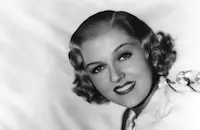
Patricia Ellis
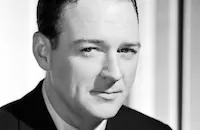
William Gargan

Joseph Cawthorne
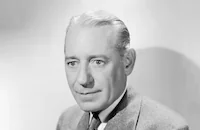
Henry O'neill

Arthur Treacher
Gordon Westcott

Joseph Crehan

William Demarest
The Maxellos
Jack Wise
Phil Ryley
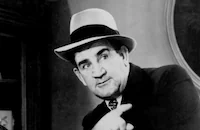
Tom Kennedy
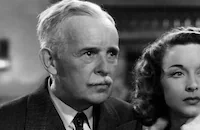
Howard Hickman
Gene Morgan
William Geffen
Eddie Larkin

Irving Bacon
Grace Hayle
Sam Ash
Charles Kaley
Milt Kibbee

William Davidson
Auguste Tollaire
Ruth Moody
Crew
Harry Akst
Harry Joe Brown
Grant Cork
Mort Dixon
Leo F. Forbstein
Anton Grot
Sid Hickox
Bert Kalmar
Bert Kalmar
Bert L'orlé
Lois Leeson
Ben Markson
Frank Mattison
Orry-kelly
Benny Rubin
Harry Ruby
Harry Ruby
Allie Wrubel

Film Details
Technical Specs

Articles
Bright Lights (1935) - Bright Lights
By Violet LeVoit

Bright Lights (1935) - Bright Lights
Quotes
Trivia
Notes
The film's working title was Broadway Joe.















